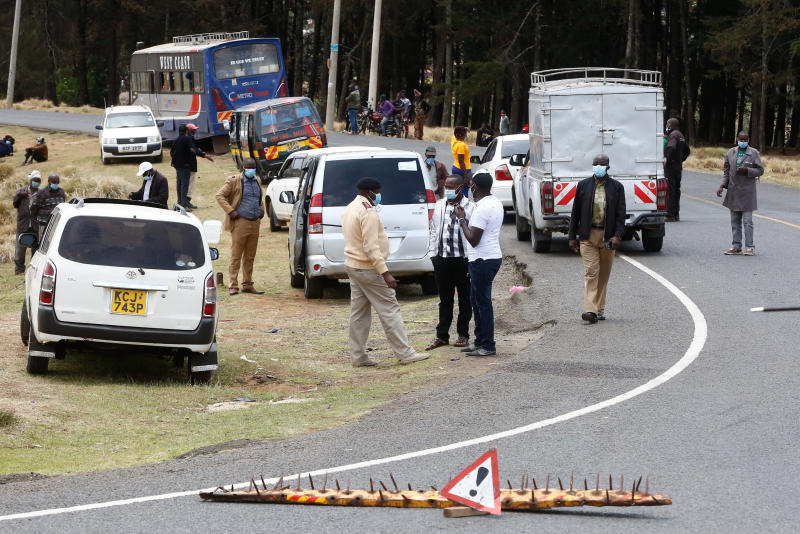Vehicles at Molo-Kericho police roadblock last year. The State was ordered to construct toilets for travellers. [Kipsang Joseph, Standard]
×
The Standard e-Paper
Fearless, Trusted News

Vehicles at Molo-Kericho police roadblock last year. The State was ordered to construct toilets for travellers. [Kipsang Joseph, Standard]
About five years ago, travellers in a Western Kenya-bound bus were shocked after one of them was attacked by a snake as she answered the call of nature in a bush in Londiani on the Nakuru-Eldoret highway. Fortunately for the woman, the snake was nonvenomous.